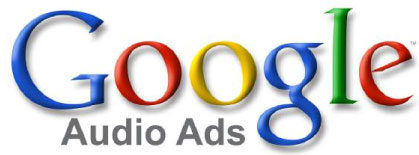Google: $20 billion radio winner?

Google famously positions every new move it makes as a “test” or a “beta” or a “learning experience,” giving it an easy out for unsuccessful forays.
In “Google’s shrewd product development and launch strategies: Free PR, free user testing” I cite Google's Marissa Mayer on her “launch products early and often” strategy:
We believe that we should be launching more products than what will ultimately become phenomenally popular. The way you find really successful new innovation is to release five things and hope that one or two of them really take off…We should be able to put products out there and, without a lot of promotion, a good product will grow. We like to put products out there early, see what users say about them, what additional features they’d like to see, and then build those out.
We’d rather put something out on Labs, have it be a little bit low-profile and grow by word of mouth. That gives the team a little bit more time to scale with the requirements. Also, it gives us some very important indications about whether or not this product fills a core need well, how big the market is, and also how strong our product is relative to others.
How strong is Google’s radio advertising product?
I put forth Google CEO Eric Schmidt’s radio “vision” last June in ““Google targets GPS-based in-car personalized advertising”:
Eric Schmidt, Google CEO, believes that when he is listening to the radio in his car, radio ads should personally address him about his needs. For example, while driving past a clothing store, a radio ad should remind Eric that he needs a pair of pants and instruct him to turn left at the upcoming clothing store.
I have been chronicling and deciphering Google’s radio advertising strategy since.

Last week, in “Google Radio Exclusive: Audio Ads in Pictures!” I put forth an exclusive look at Google’s real-world go-to-market pitch to buyers of radio advertising.
Yesterday, in “Google Audio Ads Exclusive: Radio station owner ‘Real Deal’ interview” I put forth an exclusive look at how radio stations are reacting to Google’s radio advertising product placement pitch.
What is Google’s $20 billion radio advertising potential?
Google has a lot riding on its $100 million plus dMarc Broadcasting property, acquired last January. For Google, its radio initiatives are not “tests,” or “learning experiences.”
Google informed me recently that it aims to formally announce its radio product, Google Audio Ads, by the end of this year; It will not be a “test” product, it will be launched as a “beta” product.
Google may characterize its impending Google Audio Ads as a “beta,” but its signature radio advertising product has been under development for close to a year and Google has been investing heavily in a radio sales force as well, to build up its radio spot inventory base.
In pitching prospective radio advertisers directly, Google Audio Ads sales reps tout “over 800 stations currently on the platform, growing to 5000+”:
87% US coverage,
Coverage in 19 of the top 25 markets,
300 million impressions weekly and growing!
Google also touts a too-good-to-be-true sounding pitch to radio stations: "dMarc's RevenueSuite solution fills any inventory opportunities with paid advertising, automatically!"
As I revealed yesterday, Google’s radio advertising forays are not welcomed by all radio stations.
John Taddeo expressed to me, see “Google Audio Ads Exclusive: Radio station owner ‘Real Deal’ interview,” his concerns about the impact Google Audio Ads will have on the radio industry.
I asked Taddeo if the Google dMarc pitch represents a win-win for radio stations and advertisers. Taddeo told me:
Not for stations. That is unless you are trying to reduce your ad inventory to pennies on the dollar. I call it the "station going out of business rate".
The argument goes: if you have an open slot then why not get some money instead of no money? Plus you will be "sold out" which can help increase unit rate based on supply/demand pricing.
The problem is that you are doing two things you would never allow your own staff to do. 1) lower the rate by about 95%. 2) fill up the station with cheap commercials, decreasing the listening environment for what amounts to a few dollars.
A radio station operator viewing media placements by Google dMarc as a "station going out of business rate," does not bode well for Google Audo Ads prospects; no radio station will knowingly put itself in such jeopardy.
READ MORE OF MY EXCLUSIVE COUNTOWN TO GOOGLE AUDIO ADS LAUNCH!
Exclusive pictures, too:
GOOGLE ON THE RADIO: AUDIO ADS FIRST LOOK
GOOGLE AUDIO ADS EXCLUSIVE: RADIO STATION OWNER ‘REAL DEAL’ INTERVIEW
GOOGLE RADIO EXCLUSIVE: AUDIO ADS IN PICTURES!